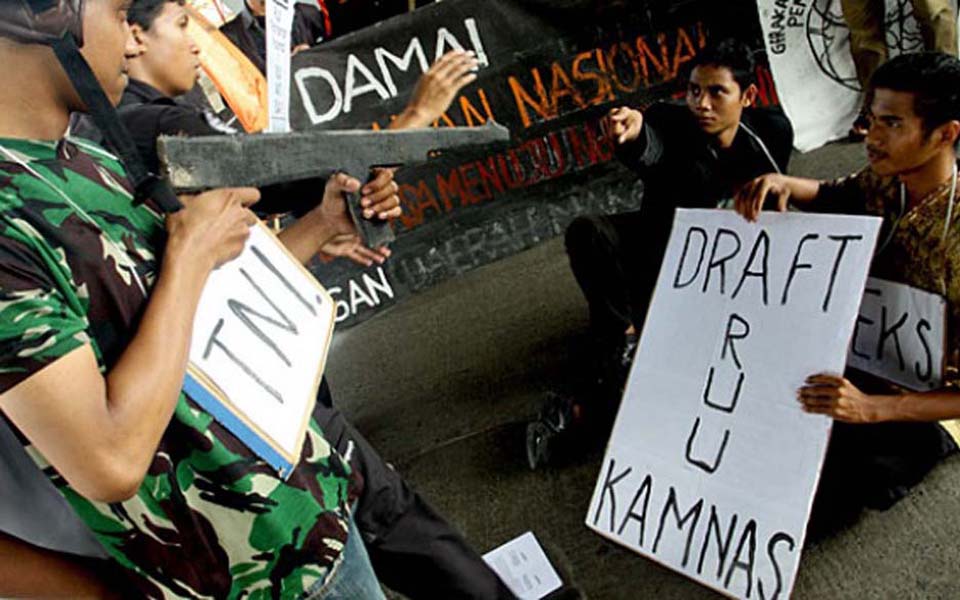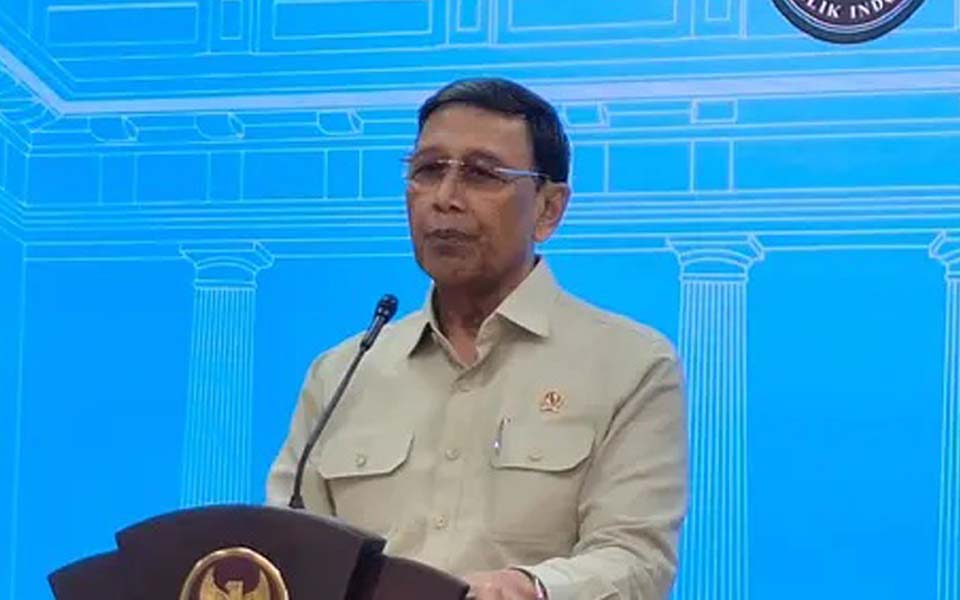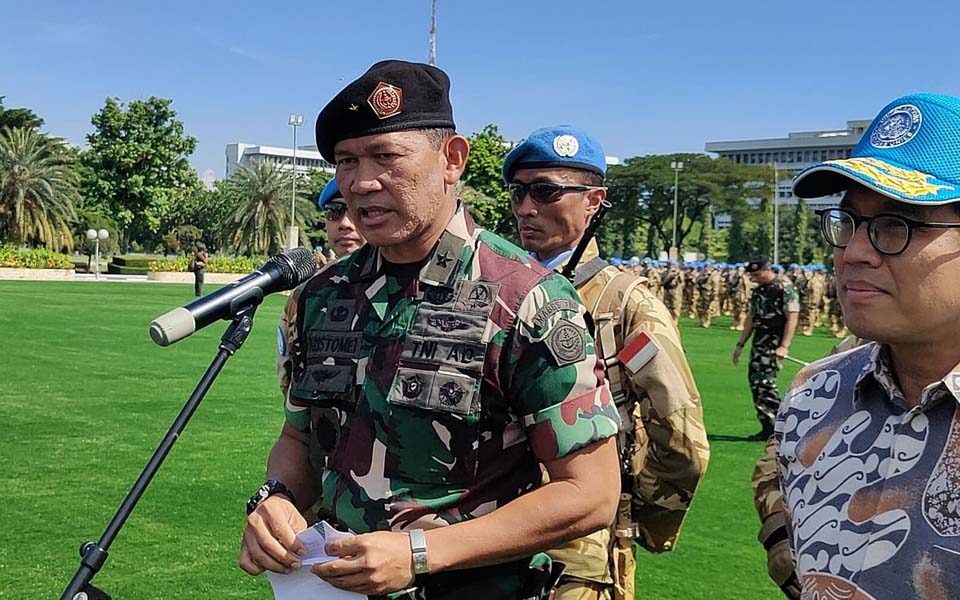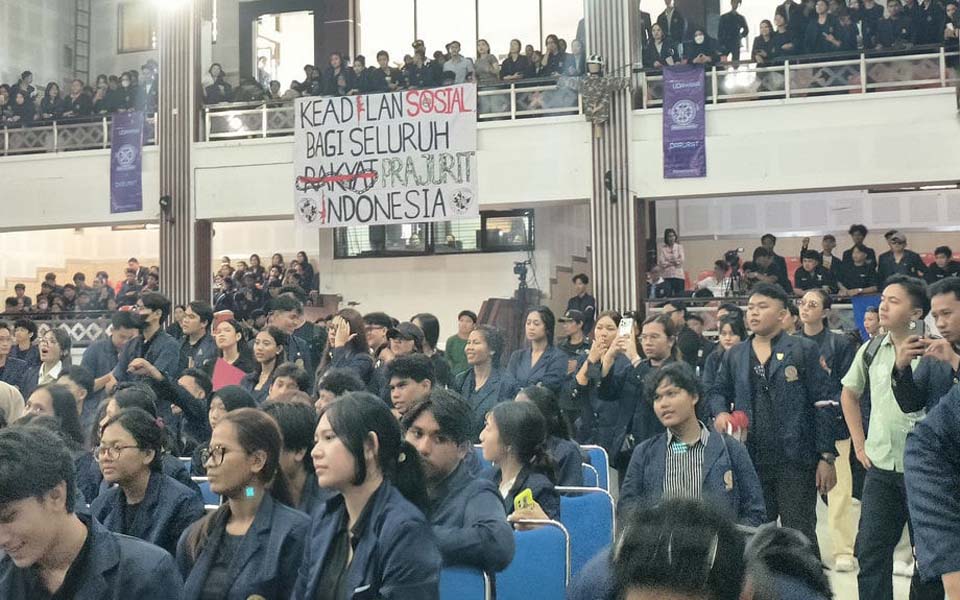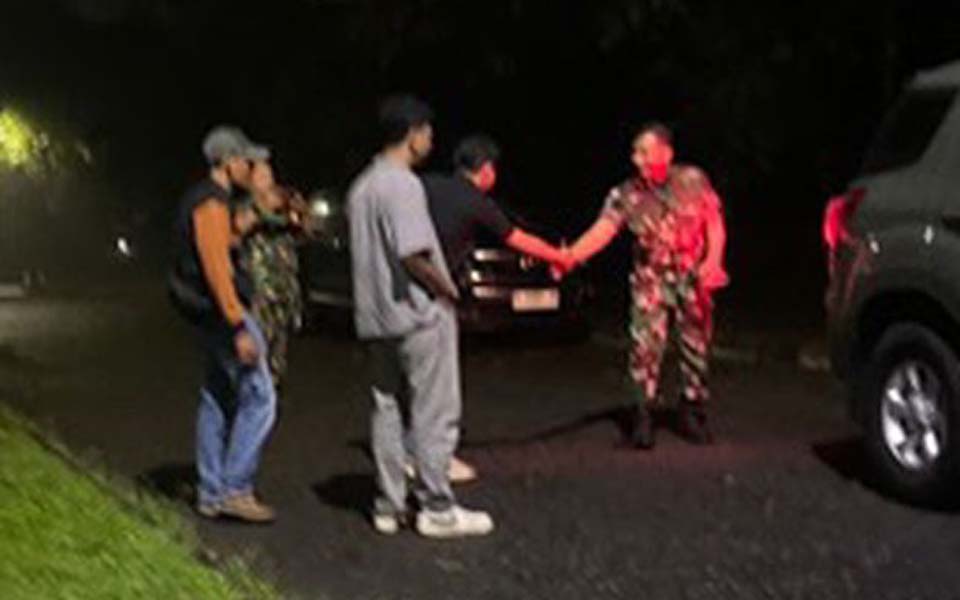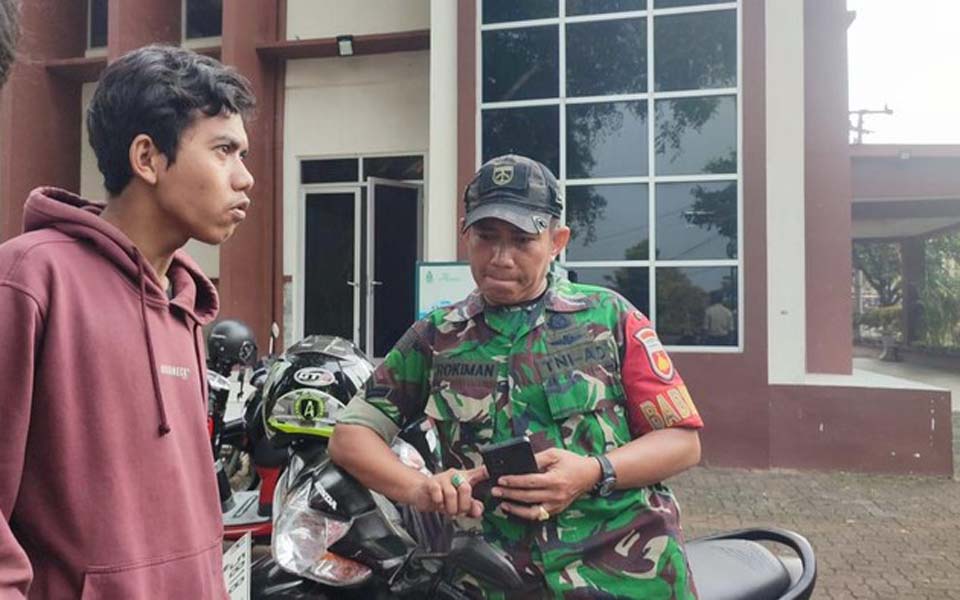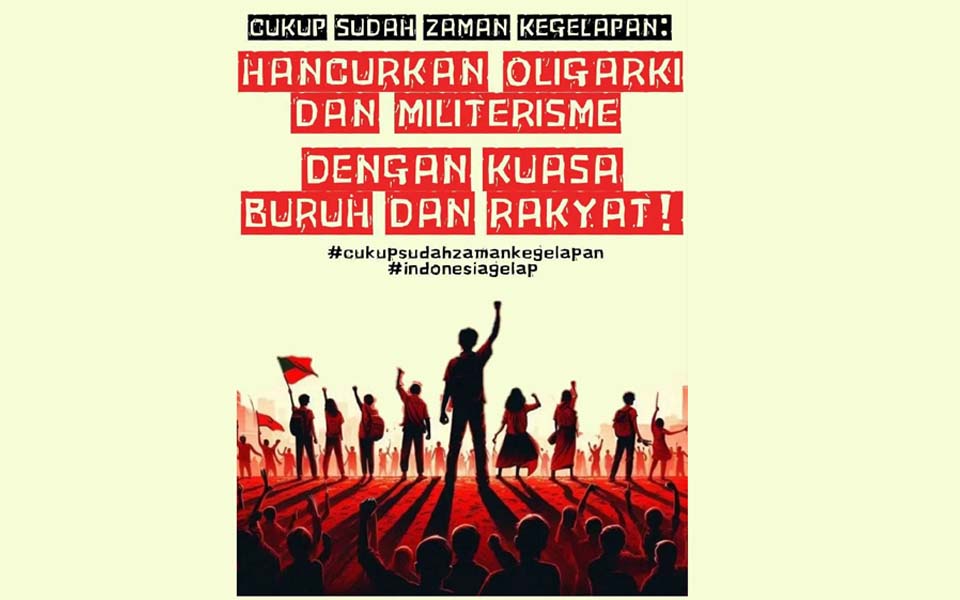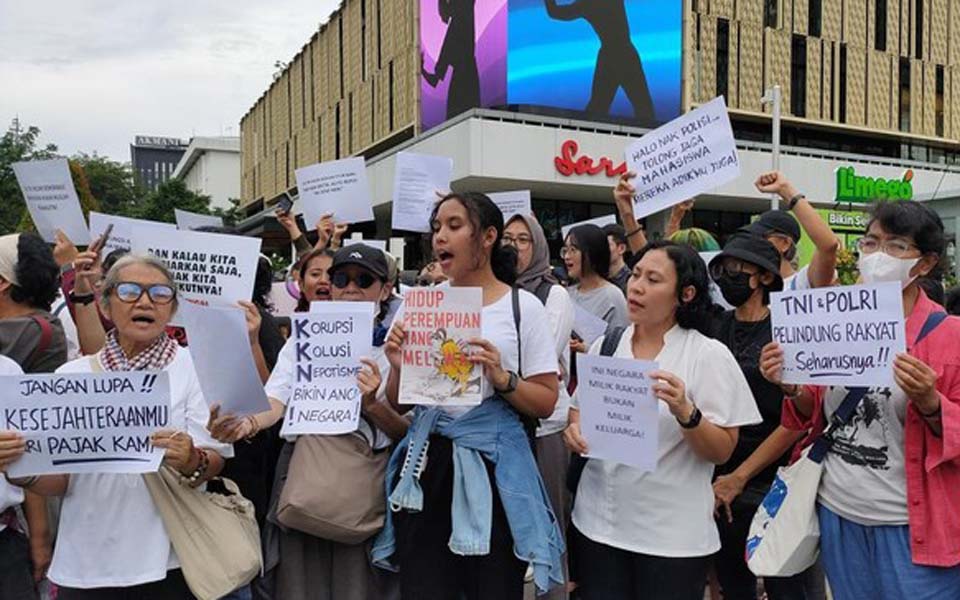Jakarta – On Friday August 27, the Women’s Alliance Against RUU TNI (Aliansi Perempuan Tolak RUU TNI) held a demonstration at the Hotel Indonesia roundabout in Jakarta. As well as opposing [deliberations by the People’s Representative Assembly (DPR)] on the RUU TNI (Rancangan Undang-Undang Tentara Nasional Indonesia, draft law on the armed forces) they also called for the abolition of the military’s territorial command structure1 which in their assessment is a source of conflict, acts of terror and intimidation which invariably sacrifices the interests of the public, particularly ordinary people.
The RUU TNI is currently being deliberated jointly by the DPR’s Commission I and the government. The government hopes that the draft law can be completed by the DPR before the next parliamentary term starts in September 2004. The articles which have attracted public attention are those on the issue of the territorial commands, military officer’s assignment to civilian posts and the doctrine of the people’s army.
The demonstrators, the majority of which were housewives or families who have fallen victim to military violence demonstrated enthusiastically. The harsh rays of the sun reflecting of the roundabout’s pool did not seem to wear them out. Activist Yeny Rosa Damayanti gave a fiery speech explaining the reasons why the RUU TNI must be opposed. Another activist, Dita Indah Sari, was busy answering questions from journalists.
The demonstrators also chanted songs of struggle and played tambourines.. Several brought long red-and-white banners reading “Oppose RUU TNI, abolish Kodam, Korem, Koramil, Babinsa2” in blue letters.
Threat
In a written statement the alliance said that the RUU TNI represents a significant threat to the ongoing process of democratisation because the TNI’s social and political function or dwifungsi, its territorial commands and the assignment of officers to civilian posts will become permanent and be legalised though the law.
In reality is however, that in practice the role of the territorial commands established in the name of assisting territorial development or other duties has often resulted in acts of violence being committed by TNI officers against workers, students, farmers and fisherpeople. (win)
Notes:
1. The TNI’s territorial command structure mandates the deployment of military command posts and detachments at all levels of the civil administration: provincial, district, sub- district and village. This structure provides the organisational framework for the TNI to act as a political security force at all levels of society.
2. The five respective commands are: Kodam – Komando Daerah Militer, Regional Military Command; Korem – Komando Resort Militer, Military Command at a level below the residency; Kodim – Komando Distrik Militer, District Military Command; Koramil – Komando Rayon Militer, Sub-District Military Command (Kecamatan) level and; Babinsa – Bintara Pembina Desa, Noncommissioned military officer posted in villages and wards and affiliated with the civilian administration.
[Translated by James Balowski.]





